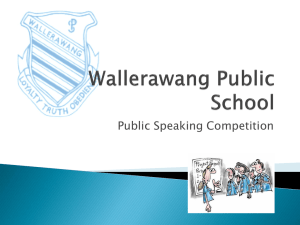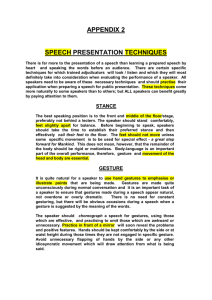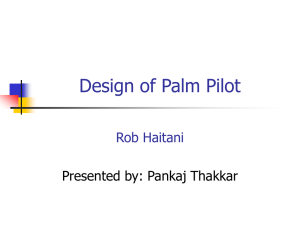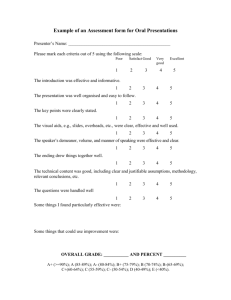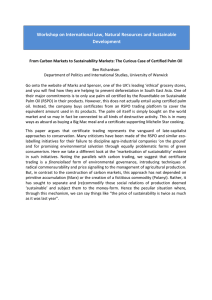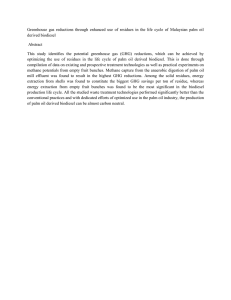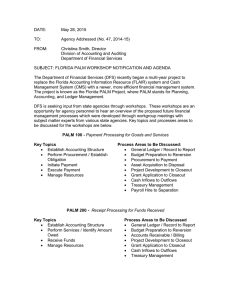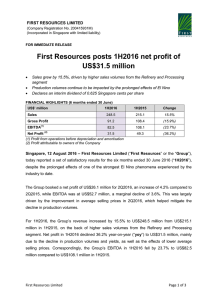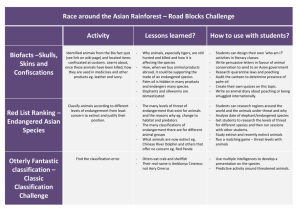Public Speaking PowerPoint - Wallerawang Public School
advertisement
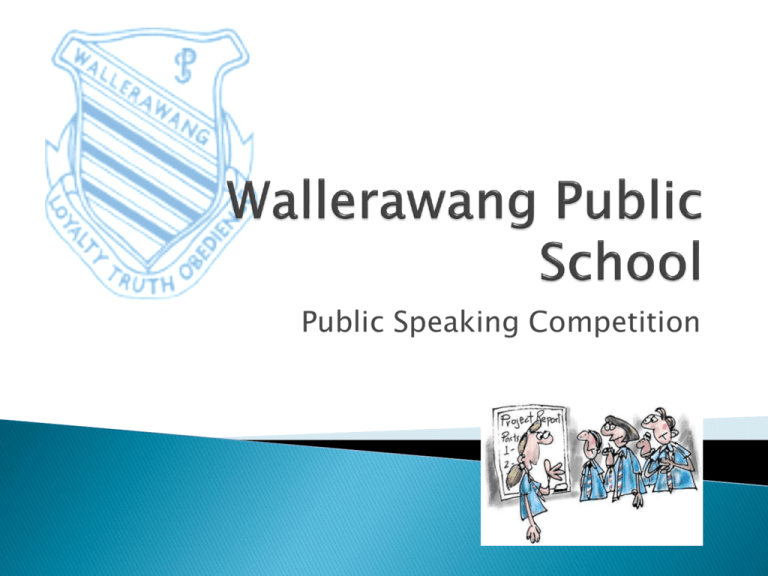
Public Speaking Competition For the past seven years Wallerawang Public School has been running a Public Speaking Competition. The purpose of this competition is to develop confidence in the children with their skills in presenting before a peer audience. Public speaking is about speaking in front of an audience. It is more formal than everyday conversations. The purpose of a speech is to communicate with the audience. For example, you might want to inform them about a topic, convince them of your point of view or arouse sympathy for an issue you feel passionate about. Speeches vary greatly in style and presentation. The style and presentation of a speech depends on: the personality and experience of the speaker the content and purpose of the speech. http://vimeo.com/54415060 Manner is how you present your speech Matter is what you say in your speech Method refers to how your speech is organised Eye contact Voice Pace Rhythm Pitch Volume Pause Gesture Stance Palm Cards https://www.youtube.com/watch?v=8 vTaK2dN3F0 https://www.youtube.com/watch?v=U DF0wpSNWEc Be natural. Always look at your audience. Change the tone and volume of your voice but still keep it natural. If you have to think about a gesture, then don't do it. Use palm cards not pieces of paper. Make your palm cards small enough to fit into the palm of one hand. You're not allowed to sing, dance, use props or pretend to be someone else in public speaking competitions. Matter' is what you say in your speech. It relates to the topic and message or point of view you want to get across to the audience. The content of a speech is often affected by the context. For example, a speech at an Anzac Day ceremony will have different content from a speech for your science class. When choosing a topic, choose one that you like and know a lot about, but also one that your audience might be interested in. Be original. That's what distinguishes one speech from others. Have a message or a point of view in your speech. Don't list possible solutions to a problem and leave the audience to decide. If you ask a question during your speech, make sure you answer it. Method refers to how a speech is organised. Method includes things such as: beginning middle ending timing. Having a well-organised speech will help you make an effective speech. The beginning or introduction of your speech should be very short. Aim to capture the audience's attention so they really want to listen to what you have to say. Make the subject and purpose of the speech clear. The introduction might include: the title of your speech (but not in a way such as 'Today my topic is...') a question that will be answered in the middle of the speech a startling opinion, fact or statement a real life example. The middle is the development or the body of the speech. It is the main part of your speech. Link it to the beginning of your speech in a logical and interesting way. In the body, the speaker gets their message across. Include a few well-explained ideas or arguments that support the topic and purpose of your speech. The points should be linked together. Don't recite them like a list. The ending of a speech is called the conclusion. It is the climax or goal of your speech. Sums up the subject and purpose of your speech in a short final statement. Relate the style and content of your conclusion to the introduction. Work towards getting your message across. Make the middle of your speech sound inspired and spontaneous. Avoid a long introduction. End with the main point or message of your speech. Avoid common endings like 'remember next time ...', and 'like I always say ...' Effective public speakers communicate with their audiences using: voice language body language. They speak naturally and from 'the heart'. An effective speech will have: a clear message be easy to follow engage the audience's interest, imagination and/or emotions. The words of a speech and how they are delivered will depend on the speaker's purpose and personality. Effective speakers: show their true personality without being too casual come across as being genuine and sincere.
